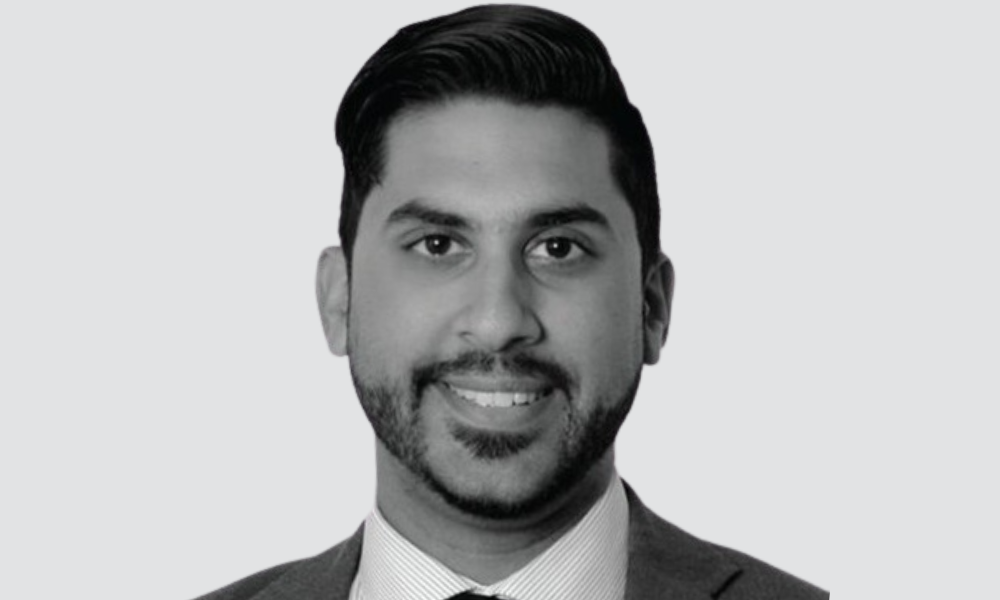
Kamal contributed to a recently released book about mental health for lawyers

Last year, a lawyer Imran Kamal knew died from cirrhosis of the liver caused by alcoholism.
The lawyer’s drinking problem was widely known. Over the last ten years, Kamal had heard colleagues – both lawyers and judges – express disgust with her condition, but he never heard anyone say they had offered her any support.
Throughout his legal practice, he has also frequently heard flippant and derogatory terms used to describe clients and colleagues struggling with addiction. “Crackhead” and “junkie,” for example.
This evidence of prevailing stigma made Kamal’s decision to contribute his story to a book about mental health in the legal profession a difficult one.
“The Right Not to Remain Silent: The Truth About Mental Health in the Legal Profession," was released April 30. The book includes a chapter Kamal wrote about addiction and recovery.
“It was probably one of the most difficult decisions I've had to make in my professional life,” he says.
Eleven years in practice and eight years into sobriety, Kamal has shared his experience in continuing professional development (CPD) sessions. He invariably receives three different forms of feedback. He will hear from participants who are struggling with addiction and never believed they could discuss the topic in a professional setting. He hears from those who know someone who is struggling and do not know how to support them. He hears from those who know someone who died as the result of an addiction.
He says the common thread is that they have never heard someone talk about it and do not know how to talk about it themselves.
In deciding to publish his story in a book, Kamal accepted the potential career consequences.
“I only did so because I truly believe in the cause and the need to destigmatize the conversation around mental health and addiction in the profession and, in turn, provide hope that we can do things differently.”
He is grateful he made the choice he did. He hopes anyone who directly supervises or manages people in the profession picks up the book, so they can understand how to foster a culture of respect, safety, and compassion, so those struggling with mental health or addiction know they are not alone, and that support is available.
Kamal is legal counsel at the Ontario Ministry of the Attorney General and a lecturer at the Lincoln Alexander School of Law at Toronto Metropolitan University where he teaches children and the law, legal research and writing, and Aboriginal and Indigenous law. He is also a certified specialist in Indigenous legal issues.
The turning point in Kamal’s story was the realization that he could no longer balance his drinking and drug use with what he viewed as the “biggest marker of social acceptability” – the ability to hold down a job.
He knew he wanted to be a lawyer from a young age, attending law school in London, UK, at age 19 after one year of undergrad. He graduated at 22 and moved back to Ontario to practice law as one of the youngest lawyers in the province.
At his first job, Kamal practised family law, but the mental and emotional toll of his drinking resulted in falling behind on billable hours. While he never used or drank at work, he was often hung over and always preoccupied. He was fired. He got another job in private practice and the problem worsened. He pushed away family and friends and grew into someone he hated. He was afraid to ask for help but knew he needed it. Then he got a job he loved, and knowing that his addiction was overpowering his career, he turned his life around and found recovery.
“I didn't have a catastrophic moment that made me want to change my life or to seek recovery. I often describe it as death by 1000 paper cuts.”
Recovery is more than waking up and abstaining from alcohol and drugs, it has allowed Kamal to examine his life’s underlying issues and learn to live along spiritual lines.
“It has made me a stronger communicator. It's made me more compassionate and respectful and tolerable to clients and colleagues alike.”
“As a litigator, it has taught me that I don't need to pull a fast one or take advantage of the other side. If I truly focus on the facts and the evidence, and I'm open minded to the other side's position, we collectively achieve better outcomes for the people that we serve in the justice system.”
The book, “The Right Not to Remain Silent: The Truth About Mental Health in the Legal Profession," contains 18 chapters written by judges, lawyers, and law professors discussing issues such as depression, anxiety, bipolar disorder, obsessive compulsive disorder, eating disorders, grief, imposter syndrome, and perfectionism.